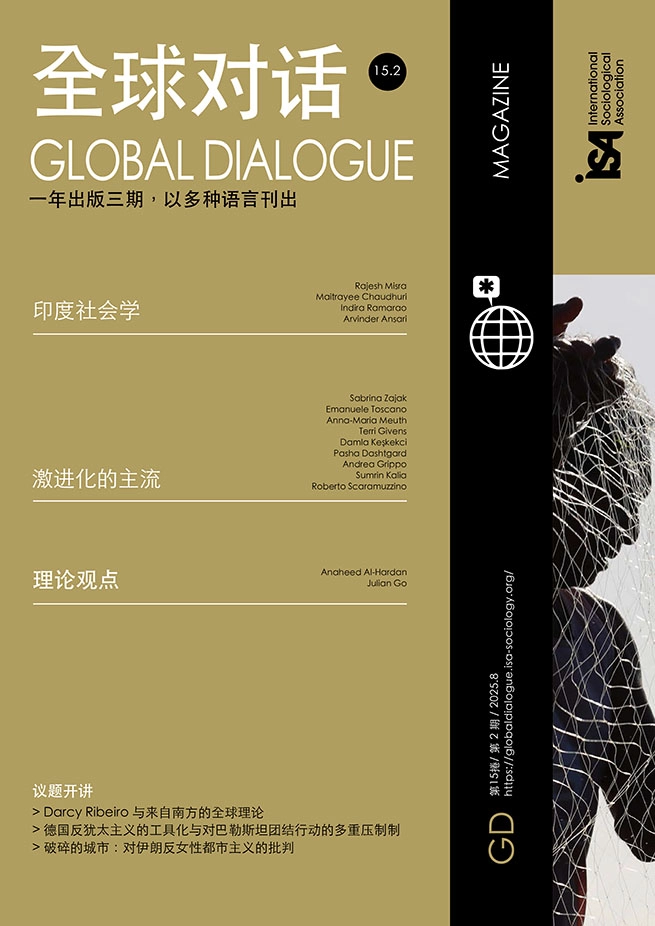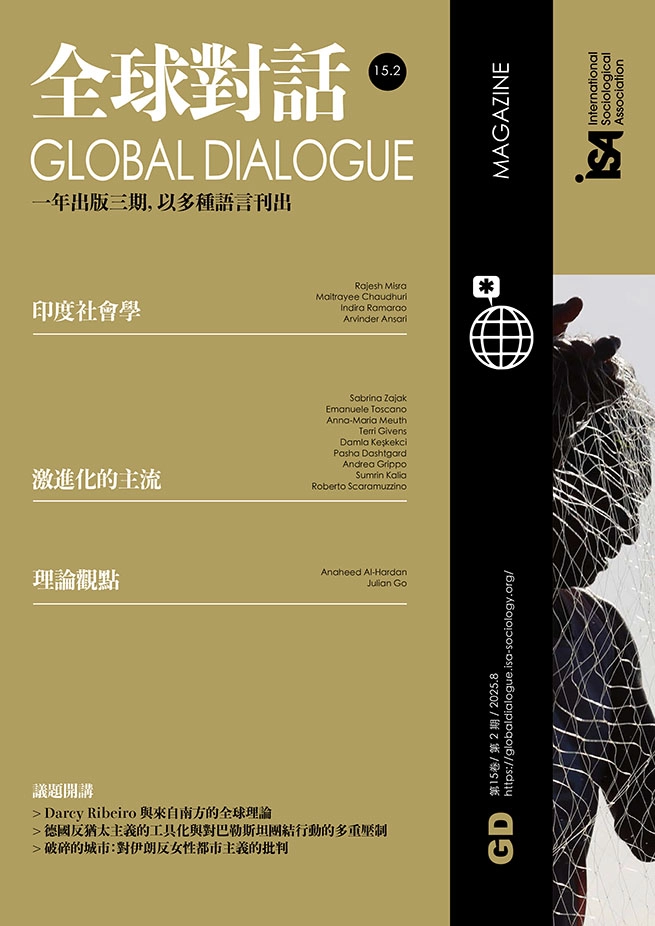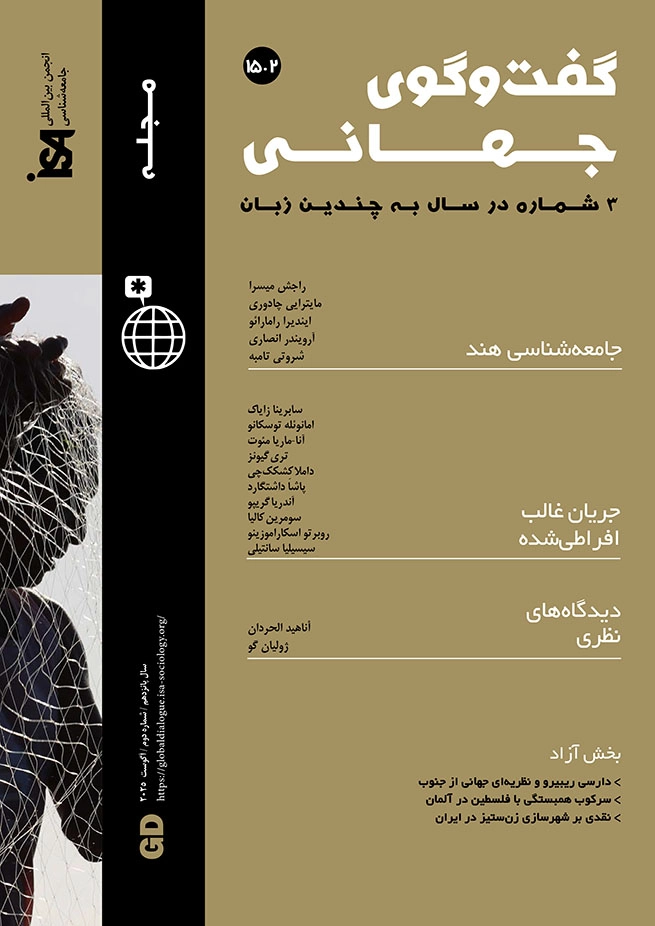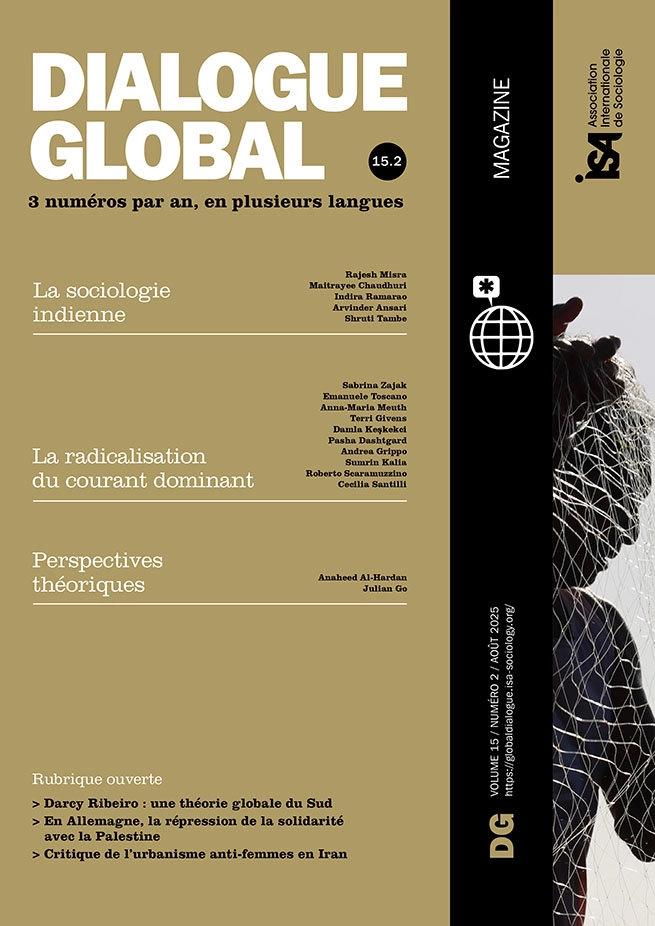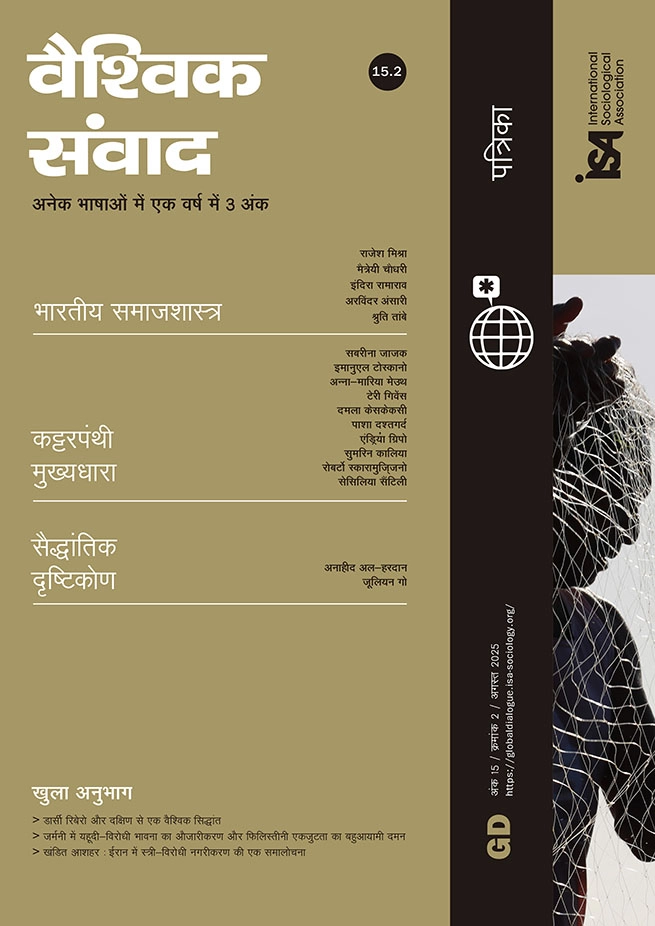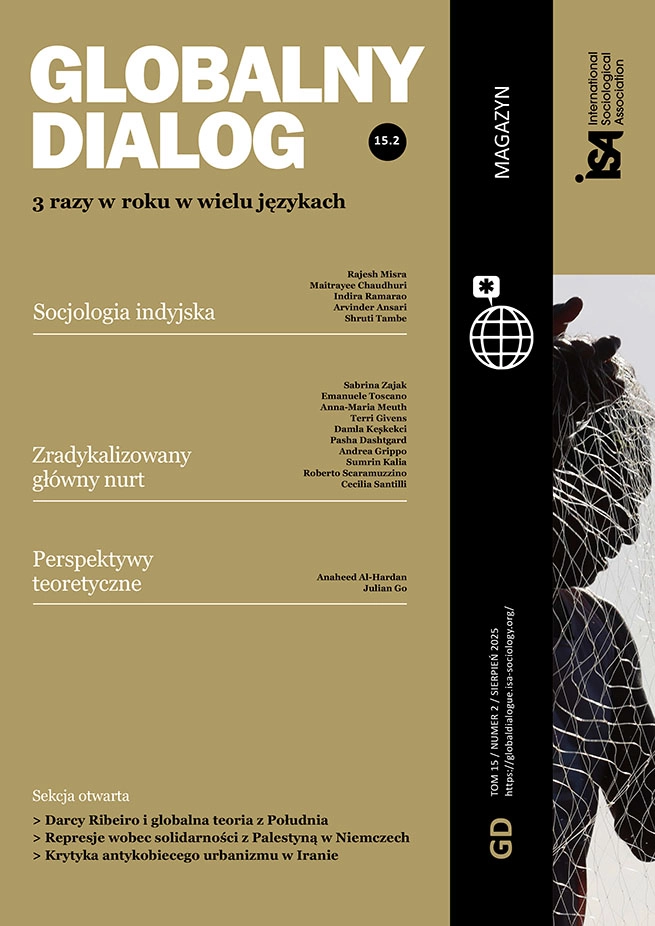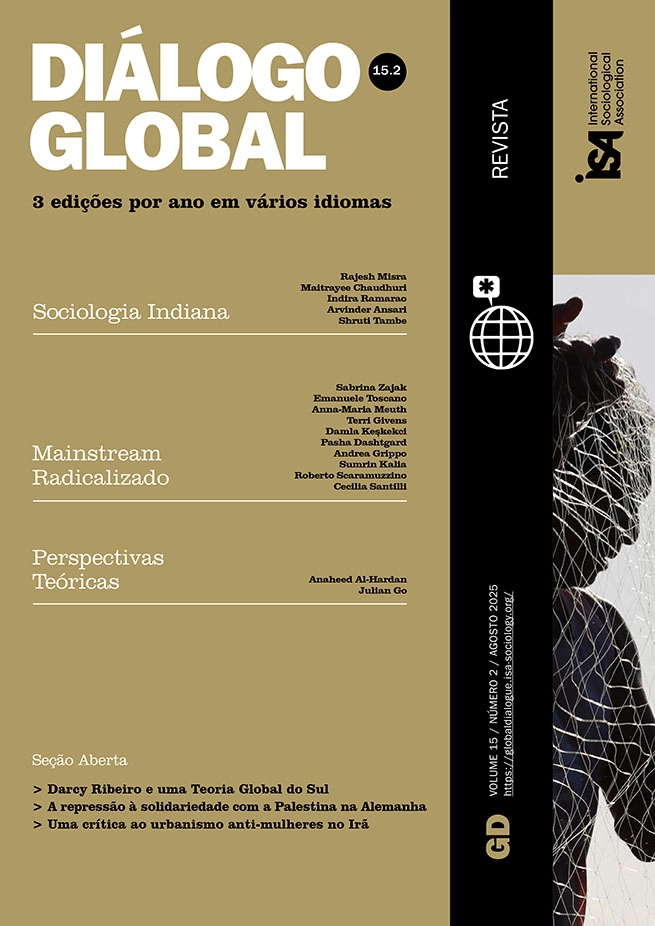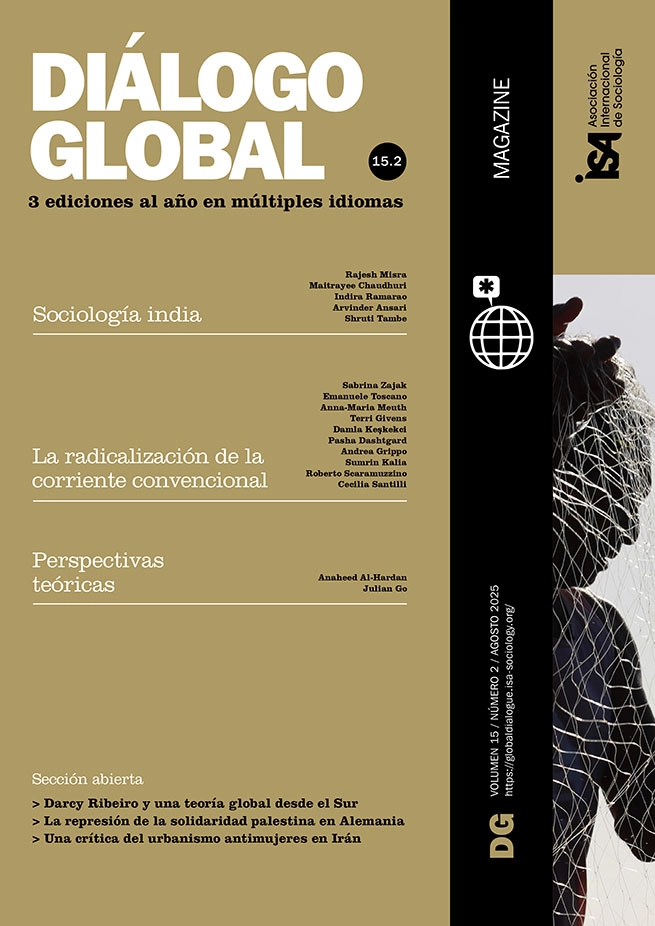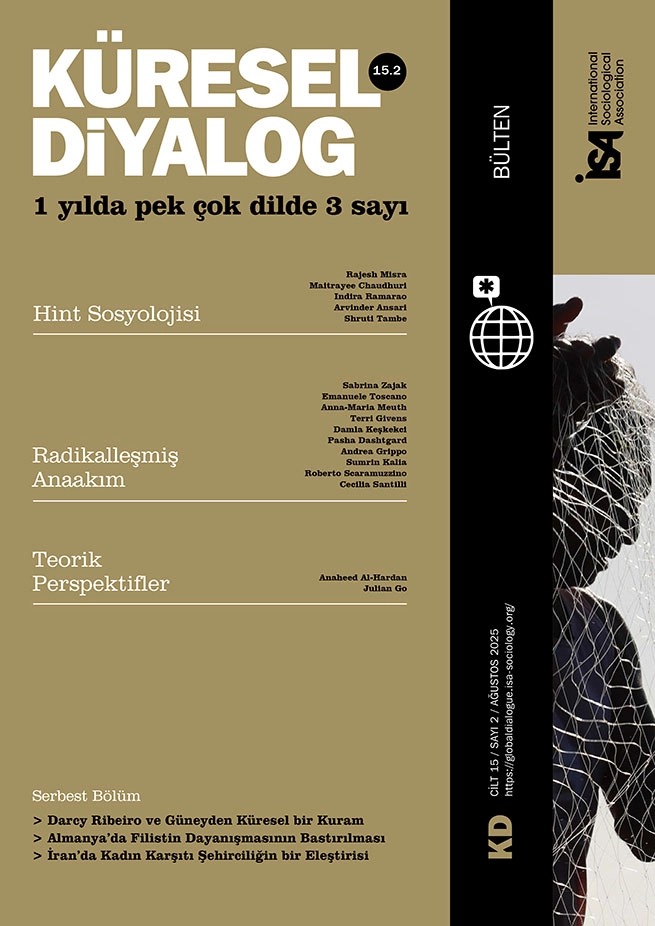Anticolonialism in History and Social Theory
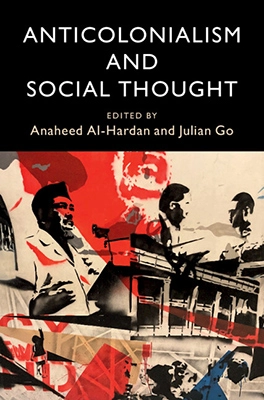
July 16, 2025
Efforts to “globalize” social theory, overturn the limitations of dominant sociological perspectives, and rethink the canon have been underway for decades. We suggest that anticolonial thought should be brought to the fore as a principal source for this project. Anticolonialism, as a stance against empire and imperialism, has produced and continues to produce novel, innovative, and vital social thinking. Amidst their struggles to change the imperial world in the twentieth century, anticolonial actors leveled devastating critiques against it. They challenged the racism, economic exploitation, political exclusions, and social inequalities of empire. They also sought to understand the world they were struggling against better, developing new concepts and theorizing the world in new ways. Anticolonialism has thus produced novel social analyses, concepts, and theories relevant for understanding society: a truly critical and dissident sociological imagination. We suggest that learning from anticolonial movements and thinkers is one strategy for overcoming the limitations of many dominant sociological perspectives.
Situating anticolonial thought
Modern European and United States imperialism began in the fifteenth century through the conquest of the Americas. With colonialism as one of its main instruments of political and economic domination, modern imperialism reached its height in the twentieth century, when the vast majority of the world’s inhabited spaces consisted of colonial empires and former colonies. Imperialism continues to structure the world today, in the form of continued colonialism or neocolonialism. Yet, it has also always faced resistance, whether from peasants, bonded laborers, and the enslaved, or activists, writers, artists, and intellectuals contesting European and later US domination and its inequalities. In the present, as neocolonialism and colonialism persist, anticolonialism from Standing Rock to Gaza continues to trouble imperial powers. Coming in diverse forms and complex genealogies – ranging from indigenous resistance to settler–colonial rule in the Americas, the Haitian Revolution against France, the numerous armed struggles of the decolonization era against faltering European empires in the aftermath of World War II, or the more recent Black Lives Matter movement and the global university occupations for justice in Palestine – anticolonialism has a rich and multifaceted tradition and constitutes continued struggle that inspires and challenges the world.
While historians have revealed some key aspects of anticolonial movements, illuminating their complexity, contradictions, and struggles, our goal is to recover the theoretical and epistemic aspects of anticolonialism. As explained in a forthcoming book published by Cambridge University Press that we co-edited, titled Anticolonialism and Social Thought, anticolonialism has produced and continues to produce novel, innovative, and vital social thinking through the process of challenging empires and imperialism. Anticolonialism has long been an active field for a social imagination that remains relevant today and provides what we argue is a distinct genre of social thought and social theory. We therefore suggest that anticolonial thought derived from anticolonialism in history should be brought to the fore as a source for social theory. We define anticolonialism as a political stance that carries certain cultural, social, and economic commitments to reverse the inequalities generated by colonialism and imperialism, which initially emerged from and is conditioned by the experiences of colonial subjugation by empires. Historically and today, this stance encompasses an array of critical views and projects. Our project recovers the social – and sociological – dimensions of this stance.
Challenging the imperial standpoint
There are two principal premises behind our contribution. The first is that most of the social theory that circulates in sociology departments and the social sciences broadly originate in a long imperialist tradition and subtly or explicitly embeds an “imperial standpoint.” What is today called sociology and the expression of its abstract principles, “social theory,” were formed within the context of European and US imperialist global expansion, as outlined above. Born in, of, and for empire, social theory thus addressed particular kinds of questions, formulated distinct concepts and theories, and conducted research that reflected the interests, concerns, and experiences of elites in the imperial metropoles. Where anti-imperialist voices did exist in the hearts of empires, such as that of W.E.B. Du Bois, they were sidelined.
The social sciences today continue to carry the imperialist imprint of earlier eras, which can be found in their analytic categories, underlying assumptions, and research questions that still reflect the interests and concerns of imperial metropoles. Constituted from an imperialist standpoint, conventional strands of social theory are still tethered to its provinciality, erasures, and blind spots. As many critics have argued in recent years, much of the disciplinary social sciences, from theorizing to research methods, has suffered from an inability to take its own relationship to imperialism and racism seriously, its persistent Eurocentrism and Orientalism, and its occlusion of the experiences, interests, and concerns of the majority of the world’s populations. At the same time, vast swaths of social theory and sociology more broadly continue to internalize the limited lenses of the imperial gaze, running into problems of essentialism, analytic bifurcations, and metrocentric assumptions. This includes the theories of dominant theorists taken to be “critical,” from the Frankfurt School thinkers to Michel Foucault. Even in the so-called “postcolonial” world, much of social theory and the modern social sciences carries the legacy of European and US imperialism – not least because in many countries around the world, the social sciences were first created within the culture of European and later US empires.
The second premise is that overcoming the pernicious legacies left by social theory’s foundational connection to empire and imperialism requires us to reach beyond existing attempts in the discipline to make sociology and its theoretical arm less provincial, more global, and more open to the diversity of the world’s experiences. These include projects that lay claim to “indigenous sociology,” “southern theory,” or “southern epistemologies.” Other projects likewise seek an “autonomous tradition” of social science or try to recover distinct regional and national traditions outside Europe. These epistemic projects are all valuable and have propelled the conversation forward in important ways. But they have particular foci and limitations that we think can be overcome by turning to anticolonialism in history as a source of social thought with ongoing relevance for today.
Global capitalist political geography is not essential to anticolonial theory or political commitments
The main limitation of existing approaches is that they are aimed at one narrowly-defined problem, Eurocentrism, and therefore seek geographically-based remedies. According to these existing approaches, the problem with dominant social theory is that it originates in Europe or “the West.” Therefore, the remedy lies in finding “non-Western” or “non-European” ideas or thinkers. The goal is to locate and use “non-Western,” “indigenous,” “Asian,” “African,” or “Southern” thinkers, seeking intellectual spaces “exterior” to or “outside” the “West” and “Global North.” These approaches thus challenge the geographic origin of thought rather than its content, while assuming that the latter is determined by the former. If a social thinker resides or originates in a “non-Western” or “non-European” location, their ideas are necessarily to be valued (only because of that geographic location).
These critiques of European social science rooted in geography certainly do make some sense. Historically, the political economy of imperialism has roughly translated onto a global geography in which its capitalist core, Europe and later the US, frequently understood as the “West” and more recently the “Global North,” has dominated the “East” or more recently the “Global South,” both materially and epistemologically. However, this rough geography of the global capitalist political economy does not fully account for the reality of the colonized and racialized within imperialist centers. Indigenous communities and other descendants of the colonized and enslaved reside in the Global North as well as in the Global South. Moreover, European settler–colonists and their descendants reside in formerly or contemporarily colonized spaces too.
The related limitation is that geographical locations do not neatly map onto political commitments or knowledge formations. Not all social thinkers nor all theories stemming from the formerly colonized world are anticolonial. Social discourse in the formerly colonized world can still internalize the imperialist standpoint, not least due to the history of imperialism that has served to spread and institutionalize imperialist assumptions, and the geopolitical configuration of contemporary knowledge production, which serves contemporary imperialist interests and reproduces a neocolonial global structure of knowledge production. By the same token, not all theorists in “Europe” or the “Global North” are necessarily and by default part of the hegemonic imperialist episteme. They have not all supported, nor do they all continue to support, imperialism and colonialism; they do not necessarily operate from an imperialist standpoint. Anti-imperialist movements, not least those influenced by Marxist thought, have proliferated in the metropoles, in conversation with their comrades in the colonies, and our book demonstrates the fruitful and productive diffusion and rearticulation of concepts from different traditions along anticolonial political lines.
Thus, what these geographically-based approaches fail to do is offer an alternative to or critique of the imperialist standpoint; and by doing so, they unwittingly reproduce imperialist assumptions. They essentialize regions, cultures, peoples, or societies into distinct geographically defined categories while presuming certain epistemic attributes of those distinct geographic spaces. This “geoepistemic essentialism” is merely the expression of the kind of essentialism that has long been part of the imperialist episteme, and which Edward Said long ago warned against, most notably in his Orientalism.
The promise of the anticolonial standpoint
We do not discard the discursive and linguistic traditions of thought of particular thinkers or theories, nor do we claim the institutional context of the development and circulation of ideas is completely irrelevant. Nevertheless, we contend that geography and identity alone are not sufficient categories with which to define and categorize dissident social theorists and social theory. Therefore, our book frames our understanding of social thinkers and theorists in terms of an opposition to colonialism rather than of geographical identity or location. To offer a true alternative to the imperialist standpoint, we are interested in the anticolonial standpoint (defined as a sociopolitical position against imperialism and its main forms of colonialism and neocolonialism) which generates a diverse tradition of social thought and theory that can be fruitfully labeled “anticolonial.”
Unlike “indigenous”, “non-Western,” or other forms of thought that some epistemic projects seek to recover, this body of thought grounded in the anticolonial standpoint is not and cannot be “outside” or “exterior” to so-called Western thought. On the contrary, anticolonial thinkers critically engaged European traditions of thought as they struggled against European and later US imperialism. Anticolonial thought and theory were forged in a critical relation to the ideas and discourses of the imperial standpoint. Anticolonial thinkers’ attempts to expand upon or rectify strands of Marxist thought, metropolitan sociology, or European philosophy are prime examples of such engagement. Furthermore, anticolonial thought was not and is not geographically delineated to single spaces in the “Global South.” Anticolonial social thinkers and their ideas circulated widely, both between metropole and colony and across the colonial world. A case in point here is Maoism, whose ideas traveled from the Chinese anticolonial as well as revolutionary war of liberation, to be taken up and interpreted by anticolonial thinkers and activists across Africa and Asia. This is not to deny the structuring power relation of the center; it is rather to recognize that anticolonial social theorists formulated theories and modes of thought that circulated through the peripheries, and to emphasize relations that were also vertical and not necessarily always already horizontal in relation to the center of the global configurations of power.
The need for anticolonialism is as urgent as ever
We do not romanticize or uncritically valorize the anticolonial standpoint. The anticolonial task of reordering the colonial world has never been a pristine or pure undertaking. It is also true that certain strands of anticolonial thought have not been immune to essentialist identity claims, or hierarchical and fundamentalist tendencies. We are not interested in anticolonial thought because we assume it is untainted ideologically or politically, but rather because of its theoretical and political potential. It offers insights, imaginaries, concepts, and categories; and raises vital questions and problems that the imperial standpoint and its expression in conventional social science suppresses and overlooks.
Finally, we do not mean to imply that imperialism and conversely, anticolonialism, are over. Imperialism in the form of continued colonialism and neocolonialism persist today. There are still territories that remain as formal colonies. Puerto Rico, Martinique, and Anguilla are some of them. In fact, the United Nations considers sixteen territories as still under colonial control, accounting for a total population of about two million people. Other examples of persistent and direct colonialism can also be found in the ongoing Palestinian struggle for national liberation from Zionist settler–colonialism. Indeed, as in the past, enduring imperialism and colonialism in its various forms have been met with novel forms of anticolonial resistance today, both in the hearts of the metropole and in our neocolonial world. This situation demands powerful theoretical tools and critical lenses which we argue can only be derived from anticolonial social thought and theory, which remain as urgent as ever.
Anaheed Al-Hardan, Howard University, USA, and Julian Go, University of Chicago, USA <jgo34@uchicago.edu>



